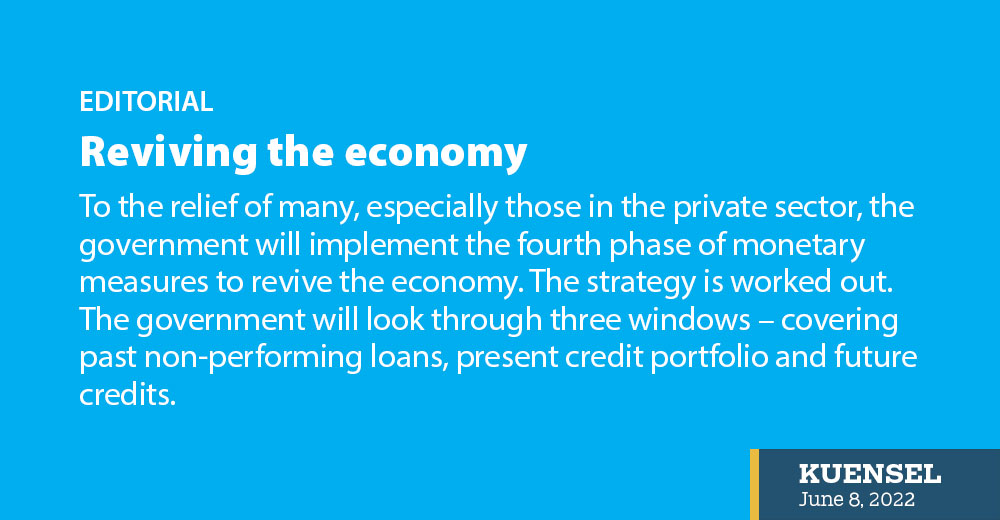To the relief of many, especially those in the private sector, the government will implement the fourth phase of monetary measures to revive the economy. The strategy is worked out. The government will look through three windows – covering past non-performing loans, present credit portfolio and future credits.
Business may not be as usual, but it has improved since the government lifted all Covid-19 restrictions. A month ago, we were operating under strict restrictions. Look around and we will see that the way we do business has returned to the pre Covid-19 times, even if the threat still lingers.
The decision to continue with the monetary measures to support the private sector, is a welcome move. It may have become a cliché, but if we have a strong private sector or an industry that promotes growth, fiscal or monetary measures to support them are needed. What growth it would bring is the biggest question. In the last two years, the private sector has benefited from the government’s monetary and fiscal policies. It may be an exaggeration, but it is said that some had benefited from the pandemic and the measures while many lost out.
Financial institutions had incurred loss from increasing deposits. Banks make money from lending. It became the other way when they had to pay interest on increasing deposits. The pandemic and our policies helped some to invest in luxury goods like expensive cars. The government and the central bank should come up with prudent financial policies as the country recovers from the Covid-19 pandemic that disrupted business. The policy should benefit all. There are enough lessons to learn. Many are questioning why a few wholesalers had access to generous and cheap loans when others struggled for access to finance.
The non-performing loan issue didn’t arise from the pandemic although it worsened it. So called financial experts are ready to support financial policies, but there are more than what is being made public. NPL happened long before the pandemic. It is not only in the agriculture or service sector. It happened because of greed for profit.
Decisions like increasing the gestation period for loans, reducing bureaucracy in accessing finance and ease in loan repayment are welcomed. It will ease the financial burden on the private sector. What is also important is to identify which sector needs help. While the policies are to fuel the private sector, the so-called engine of growth, it could backfire.
As we move to a new normal with all restrictions lifted, it would be wise to identify which sector needs help. Tourism and the hotel industry are still reeling from the impact of the pandemic. They need time and policy intervention to recover. A single policy that fits all in the private sector could be flawed. There is time and we need to identify who or which sector could benefit from government policies.


